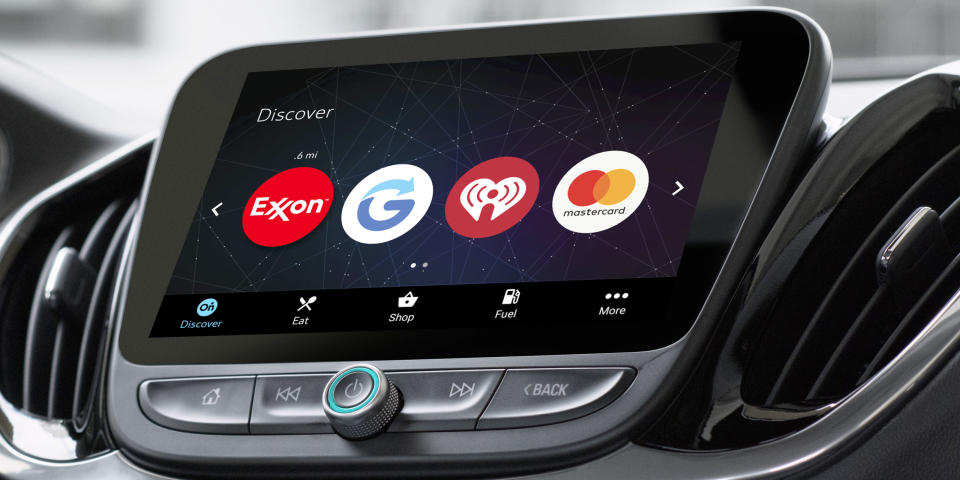GM's Infotainment Systems Are About to Get Watson's Artificial Intelligence

Automakers have been working hard lately to make infotainment systems more like smart phones. From touch screens the size of iPads to voice controls that actually sort of work, it's amazing how much better most systems are than they were as little as three years ago. But General Motors thinks the next step is even more extreme. It wants to make your infotainment system artificially intelligent.
Yesterday, GM announced a partnership with IBM to use its Jeopardy-winning Watson cognitive learning (or artificial intelligence) technology to turn OnStar into a "cognitive mobility platform." Early next year, owners will have access to the robot assistant through what GM calls OnStar Go.
Unfortunately, OnStar Go's functionality will be pretty limited in the beginning. But if the driver allows it, Watson will begin learning preferences, habits, and schedule to become the ultimate Siri or Google Assistant. GM says it could eventually remind you to pick up items you need on your way home from work, recommend restaurants while you're traveling, or place your coffee order while you're on your way to Starbucks.
That's not exactly life-changing stuff, but it's pretty neat. It'll also be interesting to see how artificial intelligence changes infotainment systems over the next few years. Heck, before you know it, it could even be as normal for your car to mobile-order takeout for you as pushbutton start is now.
What's concerning, though, is some of the other language GM uses to describe OnStar Go's intended use. For example, the information Watson gathers "will allow brand and marketing professionals working with IBM and OnStar to deliver individualized location-based interactions that directly impact their target audiences." GM also says that "companies in retail, fuel, hospitality, media and entertainment, restaurants and travel and transportation and more can use OnStar Go to build individualized mobile, in-vehicle experiences for a growing population of connected drivers that opt-in."
That sounds a lot like GM plans to use OnStar Go more as an advertising platform than anything else. And while it may be fun the first time your car suggests stopping at a nearby Dunkin' Donuts or picking up flowers for your wife, do you really want to hear an ad every single time you pass a DD? I know I sure don't.
Artificial intelligence is pretty darn cool, and Watson is already quite capable. But if OnStar Go is going to succeed, it better offer more than an endless stream of pushy commercials disguised as suggestions.
You Might Also Like

 Yahoo Autos
Yahoo Autos 